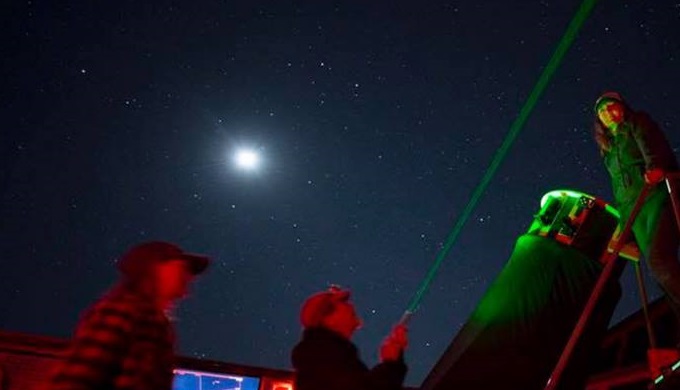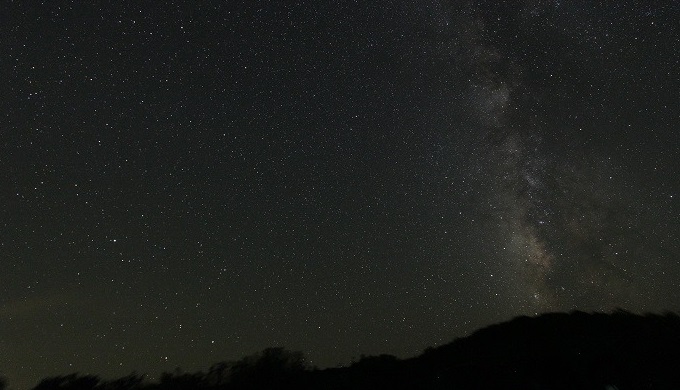If stargazing is in your future, you’ll need to get away from the city lights to properly see the night sky. The Texas Hill Country has numerous spots to do this. You’ll want to definitely check out the “dark-sky” areas, which have low levels of light pollution, but even non-designated dark-sky sites can provide you with an unforgettable view of the night sky.
Nature
5 Super Sites for Stargazing This Summer in Texas
1. Enchanted Rock State Natural Area

Photo: Facebook/Enchanted Rock
Not only is Enchanted Rock State Natural Area a delightful place to visit during the day, it’s also a stunning location to be at night. This area is only one of three specifically approved “dark-sky” parks in the state, per the International Dark Skies Association.
The Texas Parks Association takes astronomy seriously at Enchanted Rock and other dark-sky parks. It uses light measurement instruments to give you a better stargazing experience. Though currently out of service, the Parks Association’s sky quality meter is set to be repaired soon to give you the most up-to-date information about the sky’s darkness level.
2. City of Dripping Springs

Photo: Facebook/Texas Night Sky Festival
Though not a state park, the City of Dripping Springs, just outside of Austin, is one of the two non-park locations in the state to earn the “dark-sky” categorization. This city hosts the annual Texas Night Sky Festival in the spring at the Dripping Springs Ranch Park, but you can stargaze at any time of the year. Dripping Springs Ranch Park includes primitive campsites, a ranch house with guest rooms and RV hookups and is one place to start your stargazing experience in Dripping Springs.
3. Eagle Eye Observatory

Photo: Facebook/Eagle Eye Observatory
Those serious about stargazing opt for viewing space from observatories. Eagle Eye Observatory, located in Burnet’s Canyon of the Eagles park, offers a public night one Saturday a month. It’s your chance to get to see the stars up close through an astronomer’s telescope. If you need a place to stay, the Canyon of the Eagles park has guest rooms, an RV park, and campgrounds.
4. South Llano River State Park

Photo: Facebook/South Llano River
South Llano River State Park holds title to one of three dark-sky parks in Texas, which makes it ideal for stargazing. Look for star parties hosted by local astronomers throughout the year. You’ll learn more about space while getting a rare chance to stargaze away from city lights. South Llano River State Park earns a three on the Bortle dark sky scale, which correlates to the low end of the scale. Areas with a one have the darkest skies, and those with a nine have the brightest. When a location ranks close to a one, stargazers have a better view of the sky.
5. Kickapoo Cavern State Park

Photo: Facebook/Kickapoo Cavern State Park Texas Parks and Wildlife
Kickapoo Cavern State Park ranks as a two on the Bortle scale, which makes it even darker than parks with a rating of three, though it’s not officially a dark-sky park. While the caverns and bat flights attract many to this state park, it’s also a good place for stargazing from the campsites. Don’t forget to bring your own telescope or binoculars since the park does not offer special stargazing programs.



